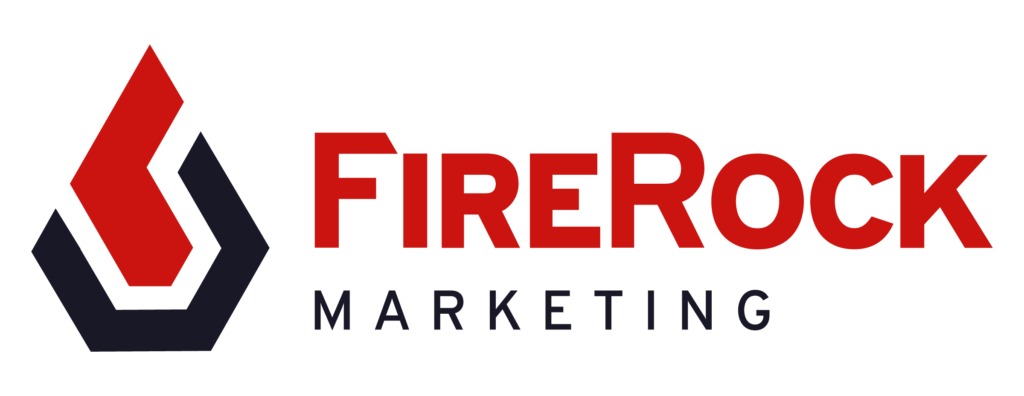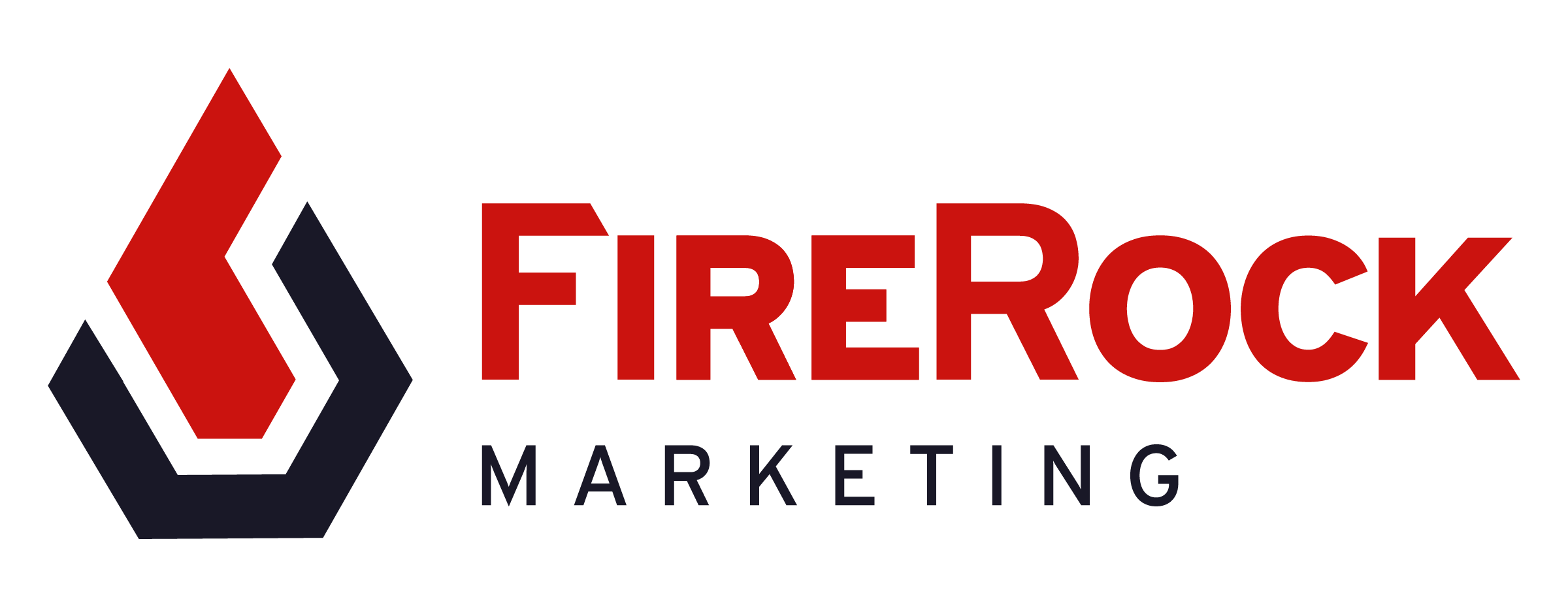What is SEO? SEO, or Search Engine Optimization, is the practice of increasing the quantity and quality of traffic to your website through organic search engine results. It’s essentially making your site attractive to search engines, so they rank it higher than your competition.
Why is SEO important? SEO is vital because it drives real business results. 61% of U.S. online shoppers start their product search on online platforms like Amazon or Google. Being highly visible in these search results can positively impact your bottom line.
Three Types of SEO: Technical SEO focuses on optimizing the technical aspects of your website, On-site SEO optimizes the content on your website for users and search engines, and Off-site SEO involves creating brand assets and initiatives that enhance brand awareness and recognition.

So, are you missing out on potential customers simply because your website isn’t easily discoverable on search engines?
Welcome to ‘The Definitive Guide to Mastering SEO Basics’.
Here at FireRock Marketing, we understand the confusion and overwhelm that comes with SEO. The seemingly complex algorithms and technical jargon can feel like a maze with no way out.
But it doesn’t have to be. In fact, we believe that with the right information, honing your SEO skills can be an empowering, and even enjoyable, process. Our goal is to help you uncover the mystery behind SEO – turning it into a tool for business growth. No jargon, no fluff, only clear, actionable steps that make a difference to your site’s visibility.
We’ll explain what SEO is, why it’s necessary, and the types of SEO practices you can utilize to improve your website’s rank on search engines. We’re excited to guide you in exploring this digital marketing strategy that has the potential to generate significant business results.

SEO is no longer optional in today’s online marketplace; it’s a necessary strategy for all businesses, irrespective of size or industry. Let this be your first step towards mastering the SEO basics and getting your business the visibility it deserves.
Stay tuned as we delve into the heart of SEO, unravel its components, and provide clear, actionable steps to improve your website’s rank in search results. Here we go!
Understanding How SEO Works
SEO, or Search Engine Optimization, is a complex process that involves several key elements. Understanding how these elements work together will allow you to optimize your site and improve its visibility on search engines. Our expert at FireRock Marketing, Ryan Esco, breaks down the workings of SEO into four main categories: how search engines work, the role of keywords, the importance of links, and how content optimization works in SEO.
How Search Engines Work
Search engines like Google and Bing have one main goal: to provide users with the most relevant and high-quality content based on their search queries. To accomplish this, search engines use complex algorithms that crawl and index web pages, assess their content, and rank them based on factors like relevance, quality, and user experience.
At its core, SEO is about making your website easy for search engines to understand and index. This involves using techniques like responsive design, robot directives, structured data, and meta tags to communicate what your site is about and help it rank for the right things.
The Role of Keywords in SEO
Keywords play a crucial role in SEO as they are the bridge between what people are searching for and the content you provide to fill that need. Your goal in keyword optimization is to figure out what keywords or phrases people are likely to use to find your content and then use those terms strategically in your content.
However, keyword optimization isn’t just about quantity—it’s about quality. It’s not enough to use your keywords as many times as possible. Instead, your keywords should be relevant to your content and used in a context that makes sense to your readers.
The Importance of Links in SEO
Links are a fundamental part of SEO. They serve as signals to search engines about the quality and relevance of your content. There are two main types of links in SEO: internal links and external links.
Internal links are links that go from one page on your website to another page on your site. They help establish an information hierarchy for your website and give search engines a clear idea of the structure of your website.
External links, on the other hand, are links from other websites to your site. These are very important as they act as votes of confidence in your content. The more high-quality external links you have, the better your site will rank on search engine results pages (SERPs).
How Content Optimization Works in SEO
Content optimization is all about making your website’s content valuable and relevant to your target audience. This involves not only using your keywords in strategic places like your title, meta description, and H1 tags but also creating content that is genuinely useful and engaging.
A key part of content optimization is understanding what your readers want and providing it to them. This could be anything from a comprehensive guide to a specific topic, a simple answer to a common question, or an entertaining video. The more your content resonates with your audience, the higher it will rank on SERPs.
In conclusion, understanding how SEO works is the first step in optimizing your website and improving its visibility on search engines. Taking into account how search engines work, the role of keywords, the importance of links, and the principles of content optimization will equip you with the knowledge you need to start improving your site’s SEO. Stay tuned for our step-by-step guide on how to implement these principles in the next section.
SEO for Beginners: A Step-by-Step Guide
Now that we’ve got a basic understanding of SEO, let’s dive into a simple, step-by-step guide on how to implement these principles. Ryan Esco, our topic expert at FireRock Marketing, has put together this straightforward guide to help you get started on your SEO journey.
Step 1: Keyword Research
Keyword research is your first step in optimizing your website. This involves identifying popular words and phrases people enter into search engines. The goal is to find keywords relevant to your business and industry that have high search volumes and low competition. There are various tools available for keyword research, including Google’s Keyword Planner and Moz’s Keyword Explorer.
Step 2: Technical SEO Optimization
Once you’ve identified your keywords, the next step is to optimize the technical aspects of your site. Technical SEO refers to making your site easy for search engine bots to crawl and index. This can involve a range of activities from ensuring your site loads quickly, is mobile-friendly, to creating an XML sitemap. A well-optimized website is like a well-oiled machine; it makes it easier for search engines to understand what your site is about and rank it accordingly.
Step 3: On-Site SEO Optimization
On-site SEO, also known as on-page SEO, involves optimizing the content on your website. This includes using your keywords in strategic places like your page titles, meta descriptions, and throughout your content. It’s important to create high-quality content that provides value to your audience. As we mentioned at FireRock Marketing, “make your site interesting and useful.”
Step 4: Off-Site SEO Optimization
Off-site SEO refers to actions taken outside of your website to impact your rankings within search engine results pages (SERPs). This often involves building high-quality backlinks, which are links from other websites that point to your site. It’s like a vote of confidence in the eyes of search engines, indicating that your site provides valuable content.
Step 5: Measuring and Tracking SEO Success
Finally, it’s crucial to measure and track your SEO success. You can use tools like Google Analytics to monitor your traffic, referral sources, conversions, and any other metric that matters to your business. This will give you a clear understanding of what’s working and what isn’t, allowing you to adjust your strategy as needed.
Mastering SEO is a marathon, not a sprint. It takes time to see results, but with patience and perseverance, it can drive real business results. As the SEO landscape continues to evolve, it’s more important than ever to stay updated with the latest trends and changes. Keep learning, keep experimenting, and never stop optimizing!

Advanced SEO Strategies
After mastering the basics of SEO, it’s time to delve into advanced strategies. These techniques, when implemented correctly, can boost your website’s performance and visibility in search engine results.
Understanding and Utilizing Mozlow’s Hierarchy of SEO Needs
Just as Maslow’s hierarchy of needs is fundamental in understanding human motivation, Mozlow’s hierarchy of SEO needs is essential in grasping the various levels of SEO work. Devised by our industry expert, Rand Fishkin, this hierarchy presents a systematic approach to SEO.
The base of the pyramid represents the most fundamental SEO needs, which include crawl accessibility, compelling content, and keyword optimization. As you ascend the pyramid, you encounter more advanced needs such as user experience, high-quality inbound links, well-optimized title tags, URLs, and descriptions, and finally, the use of schema markup to stand out in Search Engine Results Pages (SERPs).
At FireRock Marketing, we help businesses navigate this hierarchy, addressing each level of SEO needs to ensure optimal website performance.
How to Improve User Experience for Better SEO
Improving user experience is essential for SEO. A website that offers a positive user experience can boost search engine rankings, attract more traffic, and encourage users to stay longer on the site. Here are a few ways to enhance user experience for better SEO:
- Website Load Speed: A slow-loading website can frustrate users and lead to a high bounce rate. Ensure your site loads quickly on all devices to keep your visitors engaged.
- Mobile Friendliness: With more people accessing the web via mobile devices, it’s crucial to have a mobile-friendly website. This means your site should look and function well on all screen sizes.
- Intuitive Navigation: Make it easy for visitors to find what they’re looking for by having a well-structured and intuitive site navigation.
- Engaging and Readable Content: Your content should be engaging, easy to read, and free from grammatical errors. Use subheadings, bullet points, and short paragraphs to enhance readability.
The Role of Snippet/Schema Markup in SEO
Snippet or Schema Markup is a form of microdata that provides search engines with more information about your website’s content. This can help search engines better understand your content and enhance your appearance in the search results. It can also improve click-through rates by providing users with more information about what they’ll find on your website before they click on it.
Using schema markup can significantly boost your SEO performance. At FireRock Marketing, we help businesses implement the right schema markup to enhance their visibility in search engine results.
SEO is a journey that requires continuous learning and adaptation. As you delve into these advanced strategies, always keep your audience at the forefront of your efforts. After all, the objective of SEO is not just to rank high in search results but to deliver valuable and relevant content to your audience.
SEO in Marketing: Best Practices and Tips
Just as a great chef carefully selects and combines ingredients to create a memorable meal, successful SEO involves a fusion of strategies and techniques. To ensure your SEO efforts yield desirable results, follow best practices and tips. At FireRock Marketing, we’ve distilled these into four critical aspects: making your site interesting and useful, understanding and catering to your audience, building trust and authority, and using links wisely in SEO marketing.
Making Your Site Interesting and Useful
The first step in making your site a magnet for traffic is to ensure it’s both interesting and useful. Your site should not only capture attention but also offer value to visitors. This involves creating high-quality content that is informative, engaging, and relevant to your audience’s needs and interests. The key here is to focus on quality over quantity – it’s better to have fewer, high-quality pieces of content than numerous low-quality ones.
Ensure your content is well-structured and easy to navigate. This not only improves user experience but also makes it easier for search engines to crawl and index your site. As our expert at FireRock Marketing, Ryan Esco, puts it, “Your website should be a treasure trove of valuable information, not a maze that users and search engines struggle to navigate.”
Understanding and Catering to Your Audience
To effectively cater to your audience, you must first understand them. Knowing your audience’s needs, preferences, and search habits can guide your SEO and content creation strategies. Use tools like Google Analytics and Google Trends to gain insights into your audience’s behavior.
Once you understand your audience, create content that speaks directly to them. As our expert Ryan Esco advises, “Your content should answer your audience’s questions, solve their problems, and offer them something of value. This is the cornerstone of effective SEO.”
Building Trust and Authority
Building trust and authority is a crucial aspect of SEO. Trust comes from consistently providing valuable, accurate, and reliable content. Authority, on the other hand, is built through demonstrating expertise in your field and earning high-quality backlinks from reputable sites.
“Trust and authority are like the twin pillars of SEO,” says Ryan Esco. “When you build trust with your audience and establish authority in your field, you not only improve your search engine rankings but also increase your chances of converting visitors into customers.”
Using Links Wisely in SEO Marketing
Links are the lifeblood of SEO, serving as pathways that guide search engines and users through the vast expanse of the internet. When used wisely, they can significantly improve your site’s visibility and ranking.
There are two types of links to consider: internal and external. Internal links connect different pages within your site, helping to establish a hierarchical structure and improve navigation. External links, or backlinks, are links from other sites pointing to your site. High-quality backlinks can boost your site’s authority and ranking. However, as our expert Ryan Esco notes, “When it comes to links, quality trumps quantity. Focus on earning high-quality backlinks from authoritative sites rather than accumulating a large number of low-quality links.”
In conclusion, mastering SEO in marketing involves a careful balance of several elements. By making your site interesting and useful, understanding and catering to your audience, building trust and authority, and using links wisely, you can create a robust SEO strategy that delivers results.
Avoiding SEO Pitfalls and Unethical Practices
Improper SEO tactics can harm your site’s search engine ranking or even result in removal from search results. In this section, we will guide you on how to avoid these pitfalls and unethical practices.
Recognizing and Avoiding Black Hat SEO Techniques
Black Hat SEO is the term for SEO tactics that are disapproved by search engines. These strategies often involve manipulation and deception to improve search engine rankings. Some common black hat techniques include the creation of ‘shadow’ domains, the use of ‘doorway’ pages loaded with keywords, and involvement in link schemes such as buying links to increase your ranking.
As a rule of thumb, any practice that seems deceptive or manipulative should be avoided. The goal of SEO is not just to rank high in search results, but to provide valuable content to your users. It’s always better to focus on long-term success with ethical SEO practices, also known as ‘White Hat’ techniques, than to risk penalties with black hat strategies.
Understanding the Risks and Consequences of Unethical SEO
Unethical SEO practices can lead to severe consequences. Search engines like Google have sophisticated algorithms and manual review processes to detect and penalize these tactics. Penalties can range from a drop in rankings to complete removal from search results, which could be devastating for your business.
Moreover, unethical SEO can damage your brand’s reputation and trustworthiness. Users value transparency and authenticity, and deceptive practices can turn them away from your site.
How to Choose a Reliable SEO Service Provider
When selecting an SEO service provider, ensure they abide by ethical standards. Here are some tips:
- Do Your Research: Check the provider’s business references, ask for a technical and search audit, and ensure they have a clear understanding of your business and customers.
- Check Their Track Record: Ask past clients if they found the SEO provider’s services valuable and if they produced positive results.
- Avoid Guarantees: Be wary of providers who guarantee top rankings in search results. SEO results are influenced by many variables, and no one can guarantee specific rankings.
- Ask for Corroboration: When your potential SEO comes up with recommendations, ask them to corroborate these with a trusted source, such as a Search Console help page or a Google-sanctioned response in a forum.
At FireRock Marketing, we adhere to the highest ethical standards in our SEO practices. Our expert, Ryan Esco, ensures that we follow Google’s guidelines and use white hat SEO techniques to provide meaningful, long-lasting results for our clients.
In the next section, we will discuss the future of SEO and why it’s crucial to stay updated with SEO trends and changes.

The Future of SEO
SEO is not a static field. It’s dynamic, continually evolving and adapting to the ever-changing digital landscape. As we look towards the future, the question that often arises is – Is SEO still relevant in 2023 and beyond?
Is SEO Still Relevant in 2023 and Beyond?
The short answer is, yes. SEO is not just surviving, but thriving. In fact, the global SEO industry is forecasted to reach a staggering $122.11 billion by 2028. This indicates that businesses of all sizes are recognizing the value of SEO in driving real business results.
At FireRock Marketing, we firmly believe that SEO will continue to remain a critical digital marketing strategy. However, the nature of SEO will continue to evolve. As a business, you need to adapt to these changes to stay ahead of the curve.
Staying Updated with SEO Trends and Changes
To ensure the effectiveness of your SEO strategies, staying updated with the latest trends and changes is essential.
Consider the shift in search behavior. Today’s users search on various platforms, including traditional search engines like Google, social platforms like YouTube and TikTok, and retailer websites like Amazon. This fragmentation of search necessitates a more holistic approach to SEO, one that extends beyond traditional search engines.
Our expert, Ryan Esco, emphasizes the importance of understanding these shifts and adapting your SEO strategies accordingly. By doing so, you can improve your visibility, rank higher in search results, and positively impact your bottom line.
The Importance of Continuous Learning and Experimentation in SEO
Continuous learning and experimentation are key to mastering SEO. As search algorithms become more sophisticated, it is important to refine your SEO strategies to align with these advancements.
Ryan Esco suggests attending search conferences, webinars, and training programs to deepen your understanding of SEO. Books, podcasts, and online courses also offer valuable insights.
At FireRock Marketing, we’re committed to staying on top of the latest SEO trends and changes. Our team is constantly learning and experimenting with new strategies to provide the best possible results for our clients.
In conclusion, SEO is not just alive – it’s thriving. It’s an essential part of any effective digital marketing strategy. By staying updated with the latest trends, continuously learning and experimenting, you can ensure your SEO strategies are effective, sustainable, and driving real business results.
For more insights on digital marketing strategies and the future of SEO, explore our blog or check out our services. We’re here to help you navigate the ever-evolving landscape of SEO.

